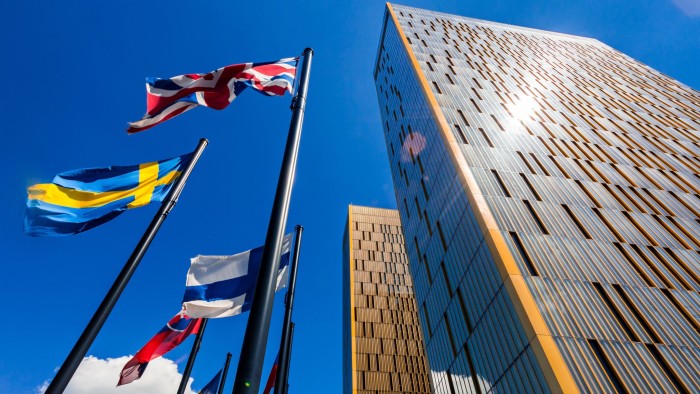‘Many ways’ Brexit may go to EU courts, top ECJ judge says

There are “many, many different ways” Britain’s departure from the EU could end up before the European Court of Justice, the president of the EU’s highest court has said, underlining the institution’s potentially pivotal role as Brexit unfolds.
In an interview with the Financial Times, Koen Lenaerts, Europe’s most senior judge, said that issues such as the treatment of Article 50, the legal path for a country to leave the bloc, “can be interpreted by our court like any other provision of union law”.
Mr Lenaerts declined to comment on the specifics of Brexit but warned that there were myriad unforeseen legal consequences of sovereign exit from the union that the EU’s top court may be called on to resolve. “I can’t even start intellectually beginning, imagining how and where and from which angle it might come,” said Mr Lenaerts.
Questions of EU law can ultimately only be settled in Luxembourg, meaning that the European Court of Justice — held up by Brexiters as an apotheosis of EU interference — may be a decisive voice in disputes over the process, content and implementation of exit terms.
Most notably, its opinion could be sought on whether Article 50 is revocable after a formal notification, a question that could be crucial for the political handling of Brexit in Westminster and Brussels. If a notification can be reversed, this will provide the British government with a means of changing course — albeit at a heavy political price — during the two years of negotiations.

The court’s jurisdiction would also stretch to the content of any exit deal and its implications for rights of citizens, companies and institutions under the treaties.
Steve Peers, a professor of EU law at Essex University, wrote: “It’s probably only a matter of time before some aspect of the Brexit issue gets decided by the EU courts; and there’s no small irony in that prospect.”
Unlike the US Supreme Court, which can dismiss cases it deems unworthy, the European Court of Justice is obliged to look at any request put before it. But even if the UK’s Supreme Court opts not to refer a question to Luxembourg, the ECJ could become involved.
Some senior EU officials argue that the UK remains bound by specific commitments made as a member, even after it has left the union and the treaties themselves cease to apply. This could leave Britain facing years of litigation in Luxembourg.
Britain’s Supreme Court will next month hear an appeal against a landmark High Court ruling that required the government to seek parliamentary approval before initiating formal Article 50 withdrawal talks.
The case rested on the assumption that Article 50 was irreversible once triggered, and therefore material to rights granted via the 1972 European Communities Act. Although both sides in the High Court case agreed that Article 50 was irrevocable, the matter could be revisited in the appeal, or raised in separate proceedings or cases.
Without directly addressing to Britain’s possible exit negotiation, Mr Lenaerts did refer to past examples of where the ECJ has set limits to EU agreements with neighbours. “When the union concludes such an agreement, the union may not breach its own law,” Mr Lenaerts said.
This specifically regards the EU’s original attempt at forming a European Economic Area court — consisting of judges from the ECJ as well as EEA countries such as Norway and Iceland — which was found unlawful by the ECJ in 1991. The landmark ruling highlights that politicians may face constraints in creating a new legal architecture with Brexit Britain.
Comments